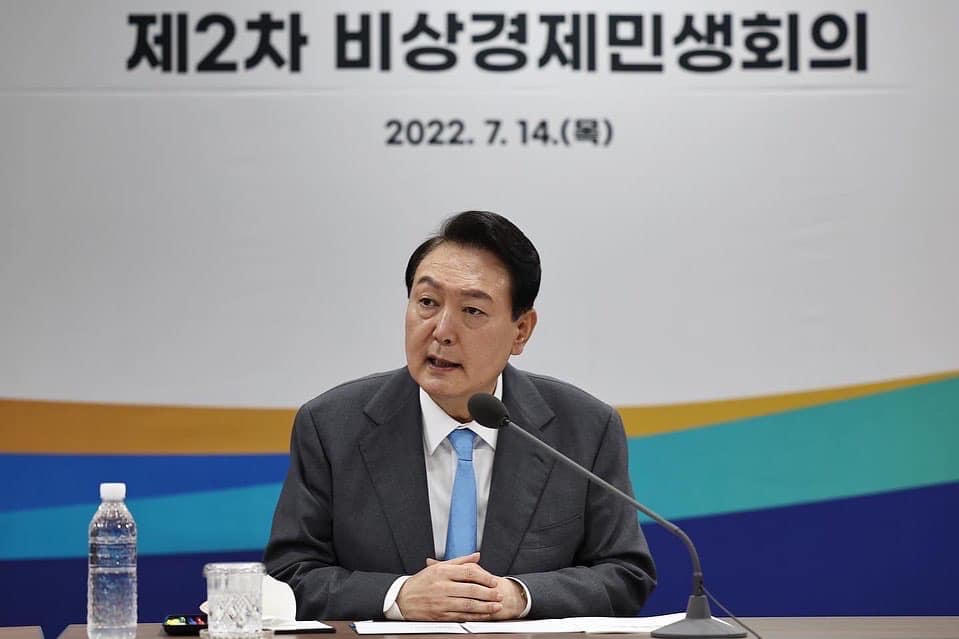News
Yoon: S. Korea-U.S.-Japan pact to continue despite leadership changes
Yonhap, Philippine News Agency

Yoon reaffirmed the commitment to the trilateral cooperation established during the historic Camp David summit a year ago, which was designed to strengthen joint responses to North Korea’s threats and other regional security challenges. (File photo: 윤석열/Facebook)
SEOUL – President Yoon Suk Yeol said Thursday that South Korea’s security cooperation with the United States and Japan will continue regardless of leadership changes as the framework benefits all three nations.
Yoon reaffirmed the commitment to the trilateral cooperation established during the historic Camp David summit a year ago, which was designed to strengthen joint responses to North Korea’s threats and other regional security challenges.
“The South Korea-U.S.-Japan cooperation framework is very important not only to the Indo-Pacific but also the global economy and security, benefiting all three nations,” Yoon said in a televised press conference. “A change in the leadership will not change this framework, and it will be upheld through the official diplomatic agreements.”
Last month, the defense chiefs of the three nations signed a memorandum of cooperation on the trilateral security cooperation framework to solidify their continued commitment to deterring North Korean threats.
Yoon’s comments came in response to concerns about the future of this framework, particularly given that U.S. President Joe Biden and Japanese Prime Minister Fumio Kishida are nearing the end of their terms.
Observers have speculated that the U.S. foreign policy under the Biden administration could shift if former President Donald Trump returns to the White House. Trump previously engaged in nuclear talks with North Korean leader Kim Jong-un between 2018 and 2019 while pressuring Seoul to sharply increase its share of the cost for stationing 28,500 U.S. troops in South Korea.
Yoon expressed confidence in the U.S.’ “extended deterrence” commitment to defending South Korea with both conventional and nuclear capabilities, as outlined in the Washington Declaration, adopted during his summit with Biden in May 2023.
“The integrated extended deterrence between South Korea and the U.S. is becoming increasingly effective as the alliance is strengthened,” Yoon noted.
Yoon also reiterated his belief that the U.S. will adhere to its long-standing goal of North Korea’s denuclearization, addressing security concerns that arose after the Democratic Party’s new policy platform omitted such a goal.
Security experts have warned that Pyongyang might interpret the omission as an opportunity to seek Washington’s acknowledgment of North Korea as a de facto nuclear power, potentially shifting negotiations from denuclearization to arms control.
“I absolutely do not believe that the U.S. will accept North Korea’s violation of the NPT,” he said, referring to the Nuclear Non-Proliferation Treaty meant to prevent the spread of nuclear weapons. “Such an acceptance would be completely inconsistent with the U.S.’ established stance and strategy.”
North Korea has insisted it is “free from any NPT obligations” as it legally withdrew from the treaty in 2003.
Yoon acknowledged talks have been ongoing regarding Kishida’s planned visit to South Korea, saying he would welcome the visit if confirmed.
He expressed a desire to continue dialogue on bilateral relations if a new prime minister is picked in the ruling Liberal Democratic Party’s leadership election next month.
“Whoever becomes the next leader, I am committed to continuing cooperation for the future and maintaining the synergy between South Korea and Japan,” Yoon said.
On relations with North Korea, Yoon said the newly unveiled “unification doctrine” based on the principle of freedom aims for a peaceful reunification, asking for the international community’s support and solidarity with the vision.
“The essence of a liberal system is that it does not engage in an aggressive war except when it must defend itself,” he said. “Our Constitution is fundamentally based on the premise of reunification and is not meant to perpetuate division.”
So far, Pyongyang has not responded to Yoon’s offer to open a dialogue channel or his announcement of the unification doctrine during the Aug. 15 Liberation Day address.
Tensions on the Korean Peninsula remain high due to North Korea’s ongoing weapons tests and recent campaigns involving balloons being sent across the border.
Pyongyang has launched more than 3,600 trash-carrying balloons since May in a tit-for-tat move against balloons carrying anti-Pyongyang leaflets sent by North Korean defectors in South Korea. (Yonhap)





















